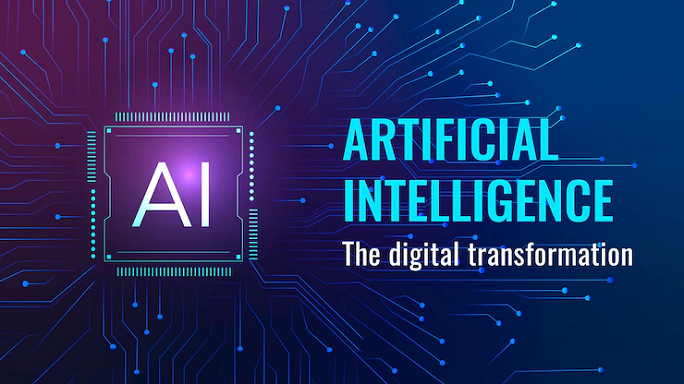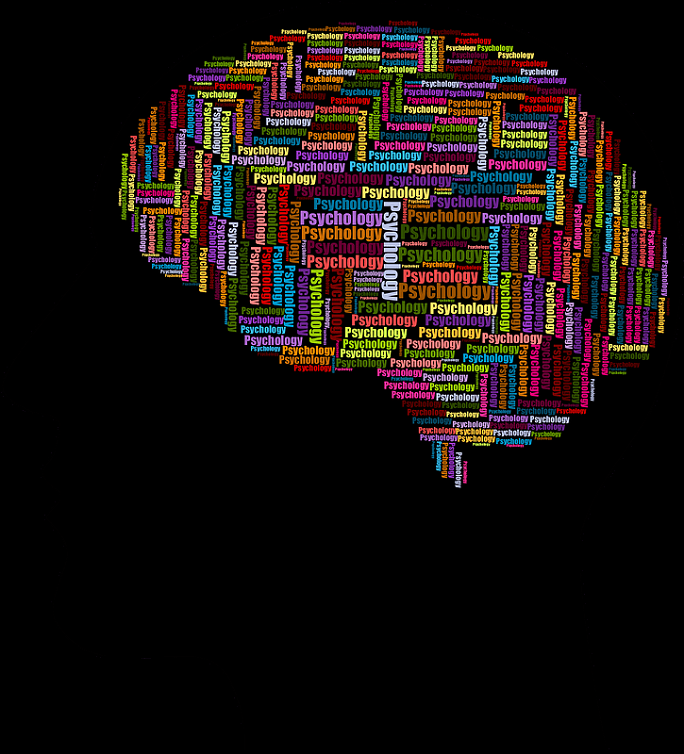AI Capabilities: 5 Skills You No Longer Need To Learn

What Is AI Capable Of ?
In recent months, artificial intelligence (AI) has made significant progress, with the launch of OpenAI's ChatGPT Plus leading to its widespread adoption.
While AI won't replicate human abilities entirely, it excels at repetitive tasks, freeing up time for individuals to focus on uniquely human skills like creativity and imagination.
As artificial intelligence continues to redefine the boundaries of AI capabilities, let's explore 5 skills that you no longer need to learn in this AI-powered world.
5 Skills You No Longer Need To Learn Thanks To AI
Art Design
The emergence of artificial intelligence has significantly streamlined the process of manual design work. A plethora of highly efficient AI programs is now accessible, with some even capable of transforming text into artistic creations.
With these programs, all you need to do is provide a description of the desired artwork, and the AI system will autonomously generate a piece that aligns with your expectations.
One notable tool gaining popularity is Dall E by OpenAI, renowned for producing remarkably realistic artwork. As a result, individuals have begun to capitalize on AI art, leveraging it as a means to earn income.
Creating artwork traditionally can be arduous and time-consuming. However, AI art tools eliminate the possibility of errors and consistently deliver high-quality content.
Whether you seek original images for your business or simply desire an outlet for creative expression, an abundance of art-generating tools is readily available for your exploration.
Scheduling
The task of scheduling meetings and appointments often demands a significant amount of time.
Nonetheless, with the aid of AI-powered tools, this process becomes more streamlined. These tools can analyze your calendar and propose optimal meeting times by considering the availability of all participants.
As a result, they help you save valuable time and minimize the likelihood of encountering scheduling conflicts.
Writing

AI Can Be An Excellent Writing Assistant
Artificial intelligence has become instrumental in simplifying the process of writing reports, emails, and basic content. With just a few clicks, you can express your expectations, and chatbots will promptly generate the desired outputs within seconds.
As AI language capabilities continue to advance, they will augment human writing jobs by summarizing information, providing suggestions, and facilitating idea generation.
In fact, some individuals are now leveraging AI to write and sell various books and content on platforms like Amazon, creating additional sources of income.
Presently, numerous industries have embraced this revolution and are utilizing AI for content generation.
Remarkably, a Japanese company has already developed an AI system capable of producing novels superior to those created by humans.
This has raised a question, will ChatGPT replace writers? Indeed, it will take some time before AI writing attains a level of proficiency that could entirely replace human writers across all genres and formats. Nonetheless, the progress made thus far is promising.
Video Editing
AI-powered editing tools have revolutionized the editing process, catering to individuals with no prior editing experience. These tools automatically select and compile the finest shots, incorporate smooth transitions, and fine-tune audio levels.
Additionally, they assist with tasks such as image retouching, video stabilization, and color correction. By generating previews, AI tools facilitate an enhanced visualization of the final product, simplifying the creative process for users.
Notably, AI video editing tools excel in detecting and rectifying errors within video footage, eliminating the need for manual inspection and correction. This significantly saves time and effort for editors.
Moreover, these tools offer valuable suggestions for enhancing the overall video quality, making them particularly advantageous for beginners who may not possess comprehensive knowledge of all aspects of video editing.
Data Entry & Analysis

AI Will Handle The Tedious Job of Entering Data
Gone are the days of wasting hours on manual pointing, clicking, copying, and pasting for data entry. Thanks to AI, the data entry process can now be automated, eliminating the time-consuming, costly, and error-prone traditional methods.
As data volumes increased, the risk of misinterpretation also grew, leading to poor quality control and a lack of focus on core business operations.
To adapt to digital transformation and provide intelligent solutions, the data entry industry is being disrupted by leveraging smart technologies and innovative data collection and entry methods powered by AI.
AI can swiftly analyze vast amounts of data, uncovering patterns and insights that humans may overlook or misinterpret, ultimately leading to improved decision-making.
Artificial intelligence thoroughly examines massive datasets, identifying trends and patterns that offer valuable insights for enhancing business processes.
By consolidating all data into a single solution, AI streamlines data analysis, providing users with a comprehensive overview.
Through AI and machine learning algorithms, large volumes of streaming data can be automatically analyzed, patterns can be swiftly identified, and actionable insights can be generated for meaningful action.
5 Skills You Need To Learn To Future-Proof Your Career

Creativity And Critical Thinking Are Two Of The Things AI is Not Capable Of
Adaptability
Keeping pace with the flow will acquire a completely new significance in the evolving workplace. Employees will be required to set aside their egos and embrace a willingness to fulfill any assigned tasks.
The luxury of simply stating, "This task is not within my purview," will no longer be feasible. Technological advancements are outpacing the ability of most workers to keep up, necessitating continuous adaptation to changing environments.
Being flexible and open to learning are crucial traits for employees to possess. Those who can adapt readily are not only more valuable and happier but also better equipped to confront challenges head-on.
Technological Capability
To many people, it is evident that technology-related jobs are the most vulnerable to risk. If a task can be automated digitally or mechanically, it is highly likely that a robot will eventually take over.
However, as technology continues to advance, there will be a growing demand for individuals who possess the capacity and skills to create, manage, and repair such technology.
In an article published by Forbes, business consultant Bernard Marr highlights the fact that "automated systems will still require oversight, particularly in the early stages. Even if an AI system can handle a company's bookkeeping, an accountant will still be necessary to ensure accuracy and identify errors."
Innovative And Creative Thinking
Creative thinking is the process of innovative problem-solving. It’s looking at a situation and evaluating it from several different perspectives.
Creative thinking involves empathy, brainstorming, visualization, observation, problem-solving, and organization. It might include experimentation.
Studies show that global teams increase creativity and innovation because of the diverse perspectives and backgrounds of team members.
Problem-Solving
Problem-solving is a crucial skill that every reputable consultant must possess. Clients seek our assistance with their most intricate and urgent challenges. In line with data analysis, the advent of AI introduces new and potent tools that can aid in this endeavor.
AI plays a significant role in problem-solving by offering fresh approaches to identifying and comprehending complex issues. Machine learning algorithms, for instance, can analyze extensive and diverse datasets, unveiling patterns and insights that would be challenging to discern through conventional means. This capability empowers consultants to identify potential problems, uncover opportunities, and devise strategies to assist clients in resolving or capitalizing on them.
Communication
With the growing need for collaboration across various teams to drive digitalization, individuals must possess effective communication abilities.
While problem-solving and understanding new technologies are essential, their value diminishes if one fails to convey their findings efficiently to colleagues and management. Therefore, the ability to effectively communicate becomes indispensable.
Employers now seek professionals with strong communication skills, as they play a crucial role in providing exceptional client and customer service.
While robots can engage in conversations, they fall short when it comes to reproducing the genuine interaction between two human beings.
Will AI Replace Humans In The Workforce?
While it is undeniable that AI has the potential to automate numerous tasks currently performed by humans, the complete replacement of human workers in the near future seems unlikely.
One of the primary reasons for this is the inherent limitations of AI. Although AI algorithms can be trained to accomplish specific tasks with remarkable accuracy, they lack the capacity for the kind of creative thinking and problem-solving that humans excel at.
Thus, fields such as research, design, and strategic planning will continue to require human workers who possess these skills.
Another factor preventing the widespread replacement of human workers by AI is the human touch essential in many jobs.
Occupations within the service industry, like waiters, bartenders, and customer service representatives, heavily rely on interpersonal skills and the ability to empathize with customers.
These are intricacies that AI algorithms are unable to replicate, creating a perpetual demand for human workers in these particular domains.
Key Takeaways
Undoubtedly, AI has transformed the skills landscape, rendering some abilities less essential. As we adapt to this new era, we can focus on developing skills that complement AI, such as critical thinking, creativity, and emotional intelligence.
Yet, the key reminder is that, let AI be your trusty sidekick, but don’t let yourself entirely rely on it. AI was born to be controlled by humans, not to replace humans.
